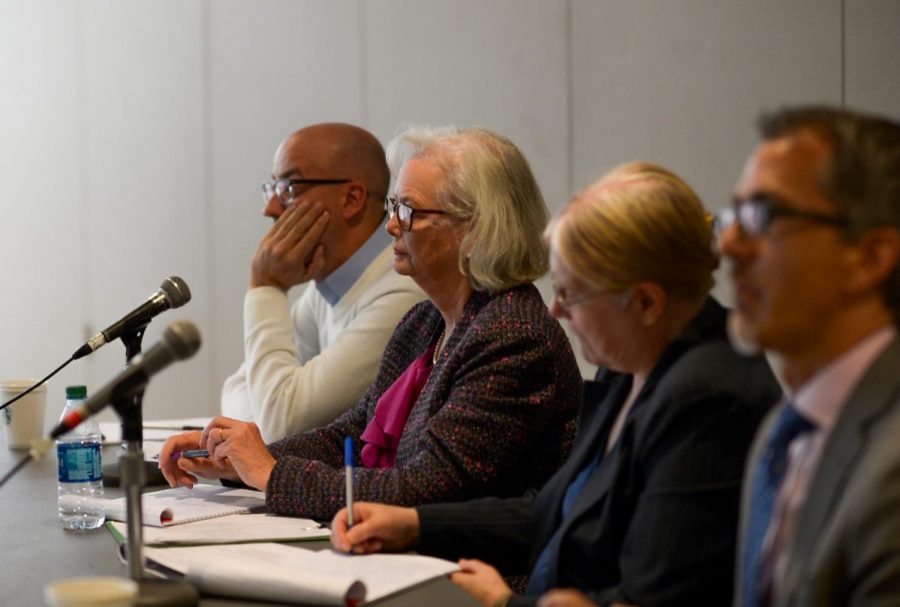WSU undergoes accreditation review
Commission evaluates how WSU followed past recommendations
Paula Gubrud-Howe, Associate Professor in the School of Nusing at the Oregon Health Science University, center left, sits on the panel that met to discuss WSU’s accreditation.
April 10, 2018
The Northwest Commission on Colleges and Universities began its on-site review as a part of the accreditation process with an open forum yesterday.
The commission serves as the authoritative body for quality of education and effectiveness of colleges and universities in the Northwest and is recognized by the U.S. Department of Education, according to the WSU website.
Through this multi-year process, the commission will review how WSU implemented the past recommendations, evaluate its current performance and make new recommendations.
The accreditation acts as a way to meet the goals and missions of a university and occurs in a multi-year cycle. During this time, WSU carries out self-evaluations that will be compared to the standards put forward by the NWCCU. WSU first received accreditation from the commission in 1918, according to the NWCCU website. The latest review occurred in 2013.
The evaluation committee examines how a university provides and makes use of resources, not criteria like graduation rates, Susan Henrich, University of Alaska Fairbanks provost and NWCCU member, said.
The seven-person evaluation committee will stay on campus until tomorrow to complete the on-site review, although the commission has no more open forums scheduled.
The 2013 review left WSU with recommendations to strengthen faculty involvement in student learning outcomes and incorporate data from those outcomes in evaluations of mission fulfillment, according to WSU documents.
WSU claims it addressed the faculty involvement concern by updating policies regarding the Assessment of Student Learning in Degree Programs, Educational Policies and Procedures to clarify roles and responsibilities for faculty members during assessments, according to the WSU accreditation website.
The members present yesterday gave further suggestions on how to combat this issue. Offering extra pay or contract incentives to participate in administrative activities focused on student learning outcomes and framing the roles as an opportunity to build relationships with administrators could be used to encourage more faculty involvement, Henrich said.
As for the data incorporation recommendation, WSU stated on its website that it has incorporated specific measures for goals into its 2014-2019 strategic plan, as well as discussion of regular assessment reports.
The commission also left commendations for the university in the 2013 report, including fostering a culture of student learning assessments and communicating program information with students.
The full criteria for the NWCCU’s accreditation process can be found on its website.





















